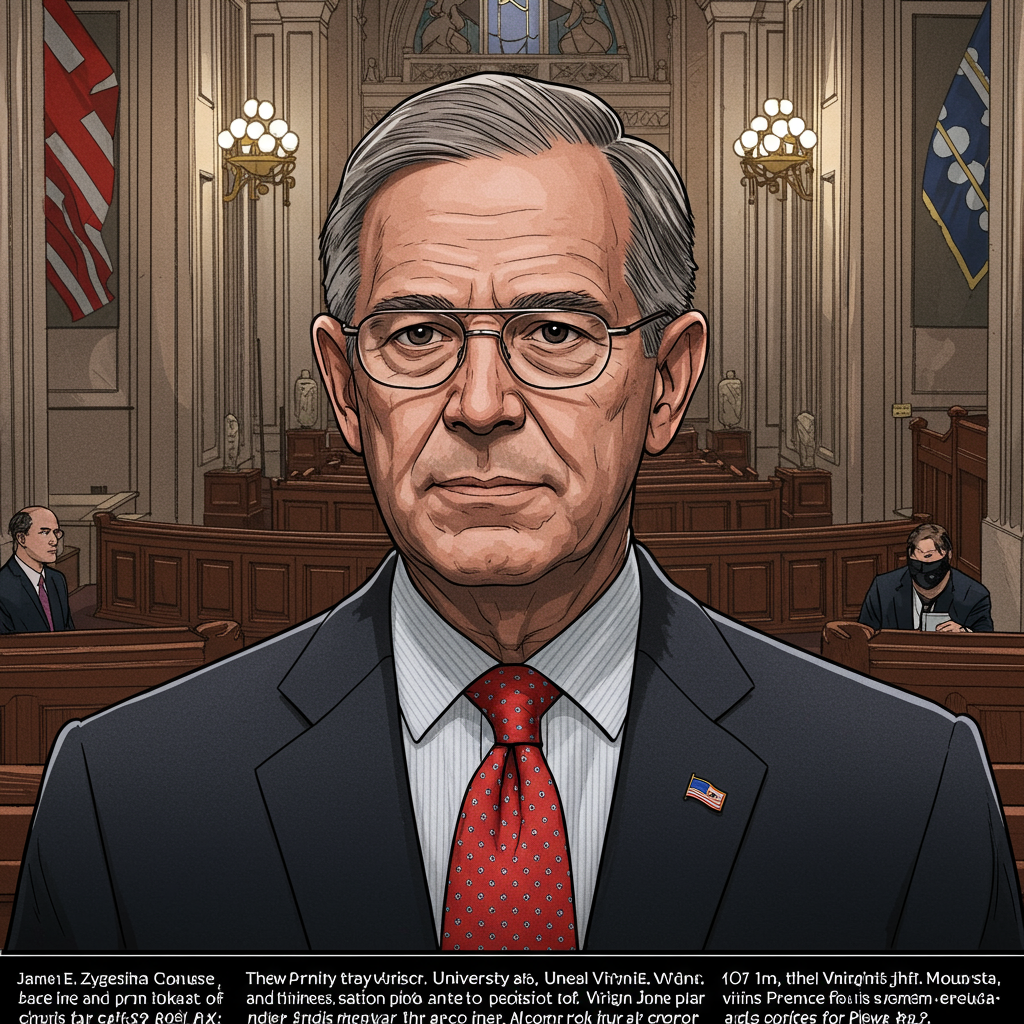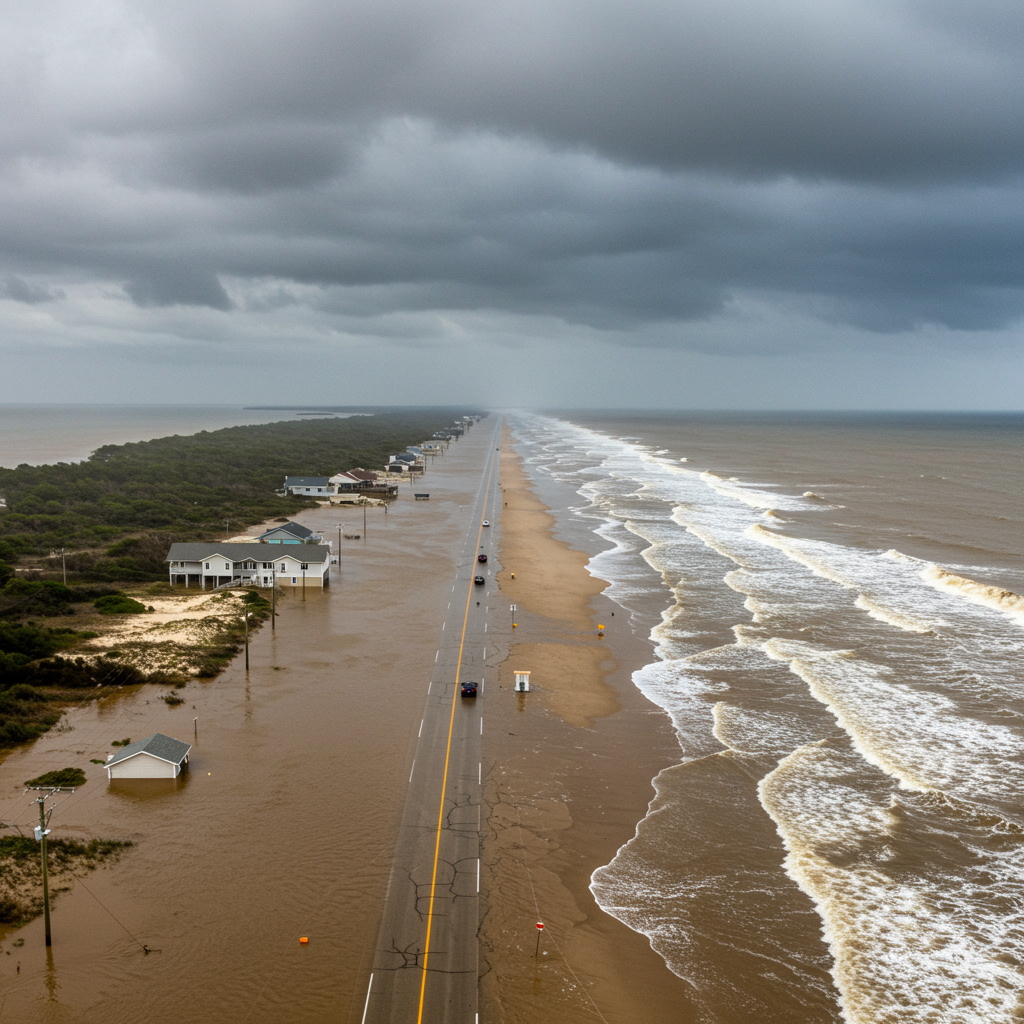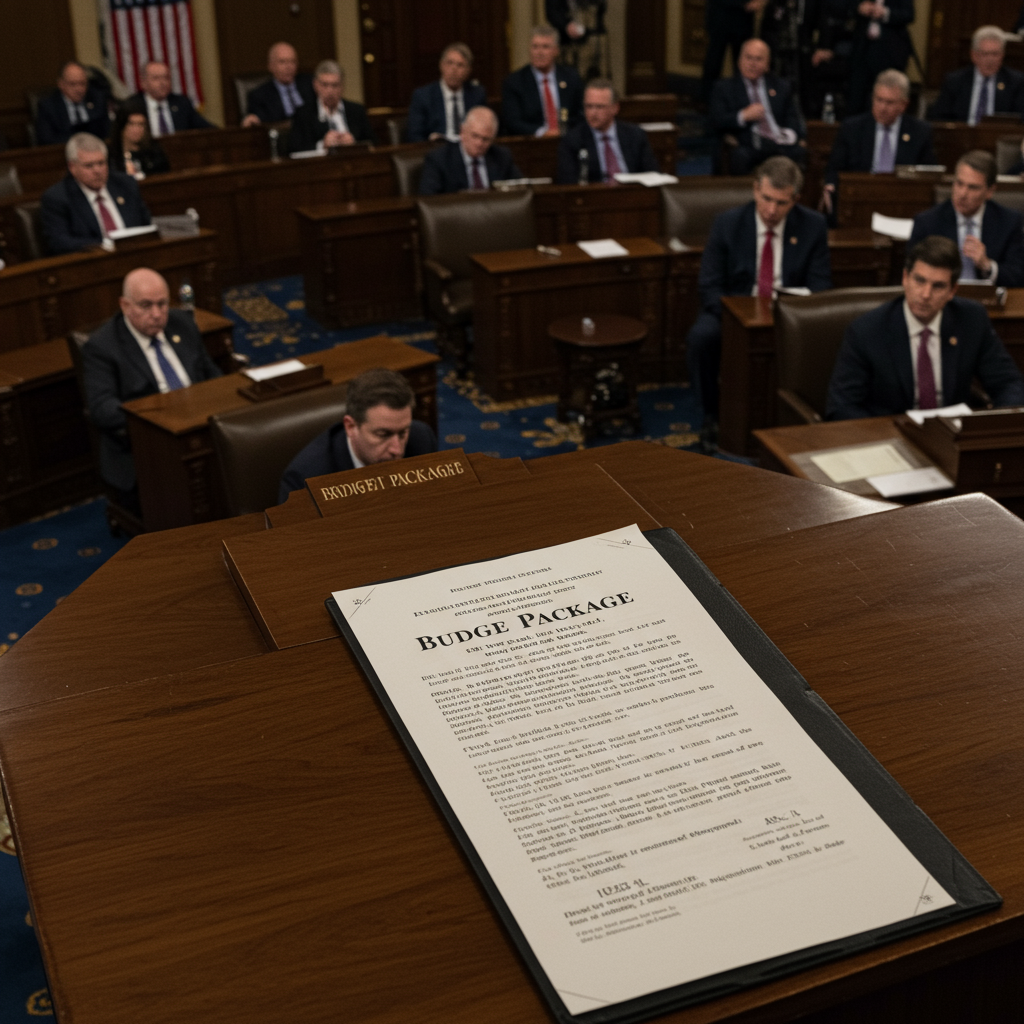The university of Virginia finds itself at the center of a national political storm. Its president, James E. Ryan, has resigned. The move follows intense pressure from the Trump administration’s Justice Department. This dramatic development is linked to an investigation into the university’s diversity, equity, and inclusion (DEI) practices.
Ryan, who took office in 2018, announced his departure on a Friday. His decision marks a significant escalation in the federal government’s efforts to reshape higher education. Sources indicate his resignation was a direct response to demands from the Justice Department. These demands reportedly aimed to settle the probe into UVA’s DEI initiatives.
UVA President’s Sudden Departure: Why James Ryan Stepped Down
In a message shared with the UVA community, President Ryan confirmed his “excruciatingly difficult” decision. He stated he was “heartbroken” to be leaving under these circumstances. Ryan explained his decision was not about fighting for his own job. Instead, it was about protecting the university from severe federal action.
He detailed the potential negative consequences of resistance. These included risks to hundreds of employees’ jobs. Researchers could lose critical funding. Students faced the possibility of losing financial aid or having visas withheld. Fighting the federal government “unilaterally” to save his position felt “quixotic” and “selfish,” Ryan stated. He felt he could not, in good conscience, risk such harm to the entire community. Ryan also noted he had already considered making the upcoming year his last for other reasons. These included completing a capital campaign and implementing strategic plans.
Protecting the University’s Future
Ryan framed his resignation as a necessary sacrifice. He believed his continued presence, viewed negatively by the Justice Department, posed too great a threat. Complying with federal demands, even under duress, seemed the only path to safeguard the university’s core functions. These include vital research, education, and clinical care initiatives.
University spokesperson Brian Coy affirmed UVA’s commitment. He stated the institution would comply with all federal laws. UVA is cooperating fully with ongoing Justice Department inquiries. Coy stressed the indispensable nature of federal support for the university.
The Justice Department’s Probe into UVA’s DEI Practices
The Justice Department Civil Rights Division spearheaded the investigation into UVA. The administration reportedly accused Ryan of merely “rebranding” diversity programs. They argued he had failed to fully dismantle them. This pressure came despite actions already taken by the university’s governing body.
In March, UVA’s Board of Visitors voted to close the official DEI office. They also moved to end diversity policies in areas like admissions, hiring, and financial aid. Virginia’s Republican Governor, Glenn Youngkin, publicly praised this earlier decision. He declared that “DEI is done at the University of Virginia” following the Board’s vote. Governor Youngkin has presidential ambitions and aligns closely with the Trump administration’s anti-DEI stance.
Continued Pressure Despite Board Actions
However, federal scrutiny apparently continued. The Justice Department reportedly believed UVA’s actions were insufficient. They accused the university of still prioritizing “race-based factors.” A letter dated June 17 reportedly warned the school to act swiftly. This suggests the Board’s initial steps were not enough to satisfy the federal demands.
Conservative groups had also leveled accusations against the university. America First Legal, for instance, sent a letter to the DOJ in May. They alleged UVA was using euphemisms to repackage DEI initiatives instead of eliminating them. This external pressure likely contributed to the intensity of the federal probe.
A Broader Campaign Against Higher Education Institutions
Ryan’s resignation is not an isolated incident. It is presented as part of a wider Trump administration effort to reshape higher education. This campaign has targeted dozens of elite institutions. The Education Department launched investigations into many universities in March. They argue that diversity practices violate civil rights laws.
Previously, much of the aggressive federal pressure focused on private universities, particularly Ivy League institutions like Harvard. These schools faced scrutiny on various fronts, including alleged tolerance of antisemitism and actions regarding international students. Harvard, with its massive endowment, has reportedly lost billions in federal grants amid disputes.
Shifting Focus to Public Universities
The pressure on UVA marks a new phase. It is highlighted as potentially the first instance of direct pressure leading to a leadership change at a public university. Public institutions, unlike wealthy private ones, are often more reliant on taxpayer money and federal funding. This makes them potentially more vulnerable to financial threats from the government. The “nuclear bomb” level of scrutiny described by one source familiar with the UVA situation underscores this intensity.
Other universities, including Columbia University and the University of Michigan, have also reduced or rebranded DEI programs under federal pressure. This indicates a significant shift occurring across the academic landscape. The government’s focus on DEI practices expands the battleground beyond previous points of contention.
Reactions and Concerns Over University Autonomy
The demand for President Ryan’s resignation drew sharp criticism from many quarters. Virginia’s U.S. Senators, Democrats Mark Warner and Tim Kaine, issued a joint statement. They condemned the administration’s actions as “outrageous.” They called the pressure part of “ridiculous ‘culture war’ traps.”
The Senators praised Ryan’s leadership at UVA. They argued that decisions about the university’s head should rest solely with its Board of Visitors. They stated this aligns with Virginia’s established higher education governance system. They called the federal interference a “mistake that hurts Virginia’s future.”
Experts Warn of Executive Overreach
Experts in higher education governance expressed deep concern. Peter McDonough, Vice President and General Counsel of the American Council on Education, called it “thuggery.” He described the day as “dark” for UVA and for higher education overall. McDonough questioned the administration’s methods. He specifically cited the use of federal funding to exert control outside of established due process. He argued the federal system does not give the executive branch power to micromanage universities or force out leaders.
McDonough suggested Ryan’s resignation could be a “tipping point.” It threatens the autonomy of previously independent higher education institutions. He referenced past rhetoric questioning the role of universities. He warned that the unique and valuable “mosaic” of U.S. higher education, envied globally, is now potentially “at risk.” The diverse system contributes significantly to national economic vitality, security, and research.
Conflicting Perspectives
Not all reactions were critical of the administration’s actions. Ilya Shapiro of the Manhattan Institute reportedly suggested Ryan’s resignation was necessary. This view argued that UVA might not have fully complied with mandates to dismantle DEI programs. Shapiro felt new leadership was sensible given Ryan’s prior involvement in DEI.
However, McDonough pushed back against this. He noted no outcome had been reached in the investigation. Calling the resignation necessary sounded like a “verdict without a trial,” he argued. He stated that simply branding initiatives as DEI is not inherently illegal. It should not necessitate a president’s resignation before an investigation concludes. The event highlights a stark divide in how federal oversight of universities is viewed.
The Stakes: The Crucial Role of Federal Funding
The core leverage point for the Trump administration was the threat of withholding federal funds. This financial pressure is immense for major universities. While UVA has a substantial endowment (reportedly $10 billion), it still relies heavily on federal dollars.
These funds are critical for numerous aspects of university operations. They support vital research projects across various disciplines. They fund student financial aid programs, enabling access for diverse populations. Federal money also underpins clinical care in university hospitals and supports international student visas. The loss of millions, or potentially billions, in funding would severely cripple the university. It would impact its ability to conduct research, educate students, and provide healthcare services. Ryan’s decision reflects the gravity of this financial threat. He chose to resign rather than put these essential functions at risk through a prolonged legal and political battle.
Looking Ahead: Uncertainty for UVA and Higher Education
The exact date of Ryan’s official departure remains unclear. His resignation leaves a leadership void at a prestigious public university. It also raises questions about the future direction of UVA’s diversity and inclusion efforts. While the Board took steps in March, the federal government’s continued pressure suggests more changes may be demanded.
The event sends a chilling signal to other universities nationwide. It suggests that resisting federal directives on politically charged issues like DEI could have severe consequences, including leadership changes and financial penalties. Experts worry this could force institutions to align with prevailing political winds. This potentially undermines academic freedom and institutional autonomy.
The situation at UVA underscores the intense political landscape surrounding higher education. It highlights the vulnerability of even prominent institutions to federal pressure. The long-term impact on UVA and the broader system of U.S. higher education governance remains to be seen.
Frequently Asked Questions
What was the primary reason behind James E. Ryan’s resignation as UVA President?
James E. Ryan resigned due to intense pressure from the Trump administration’s Justice Department. This pressure stemmed from a federal investigation into the University of Virginia’s diversity, equity, and inclusion (DEI) practices. Ryan stated he resigned to protect the university from severe consequences, including the potential loss of federal funding, rather than fight for his own job.
What specific university practices led to the Justice Department investigation?
The Justice Department investigated UVA’s DEI policies and practices. Reports indicate the government alleged the university prioritized “race-based factors” in areas like admissions and other aspects of student life. The administration reportedly felt Ryan had not fully dismantled DEI initiatives after the Board of Visitors voted to close the DEI office and end certain diversity policies in March.
How could this situation potentially impact UVA students and staff?
President Ryan highlighted significant potential negative impacts if he had resisted the federal pressure. These included hundreds of employees potentially losing jobs, researchers losing funding for their projects, and students facing risks to their financial aid or international student visas. While his resignation aimed to mitigate these risks, the underlying federal scrutiny could still influence university policies and funding moving forward.
Conclusion
The resignation of UVA President James E. Ryan marks a watershed moment. It is a clear demonstration of the Trump administration’s escalating pressure on higher education. Driven by a Justice Department probe into diversity practices, the event highlights the vulnerability of even major public universities to federal demands, particularly concerning crucial funding. While Ryan stated his decision aimed to shield the university from greater harm, experts warn it sets a concerning precedent, potentially undermining university autonomy and governance. The situation leaves UVA’s immediate future uncertain and raises broader questions about the balance of power between the federal government and academic institutions across the nation.
Word Count Check: 1189




